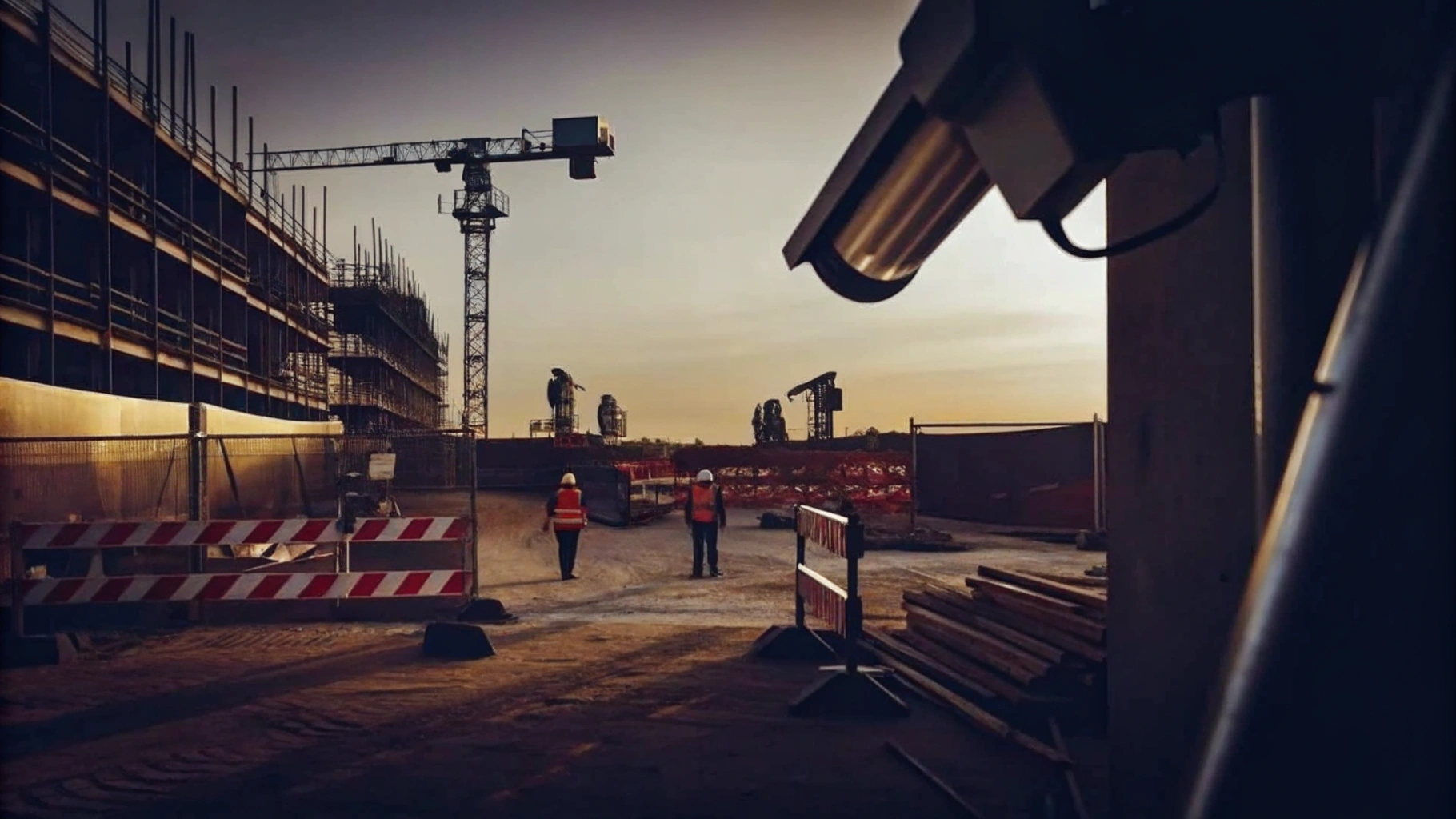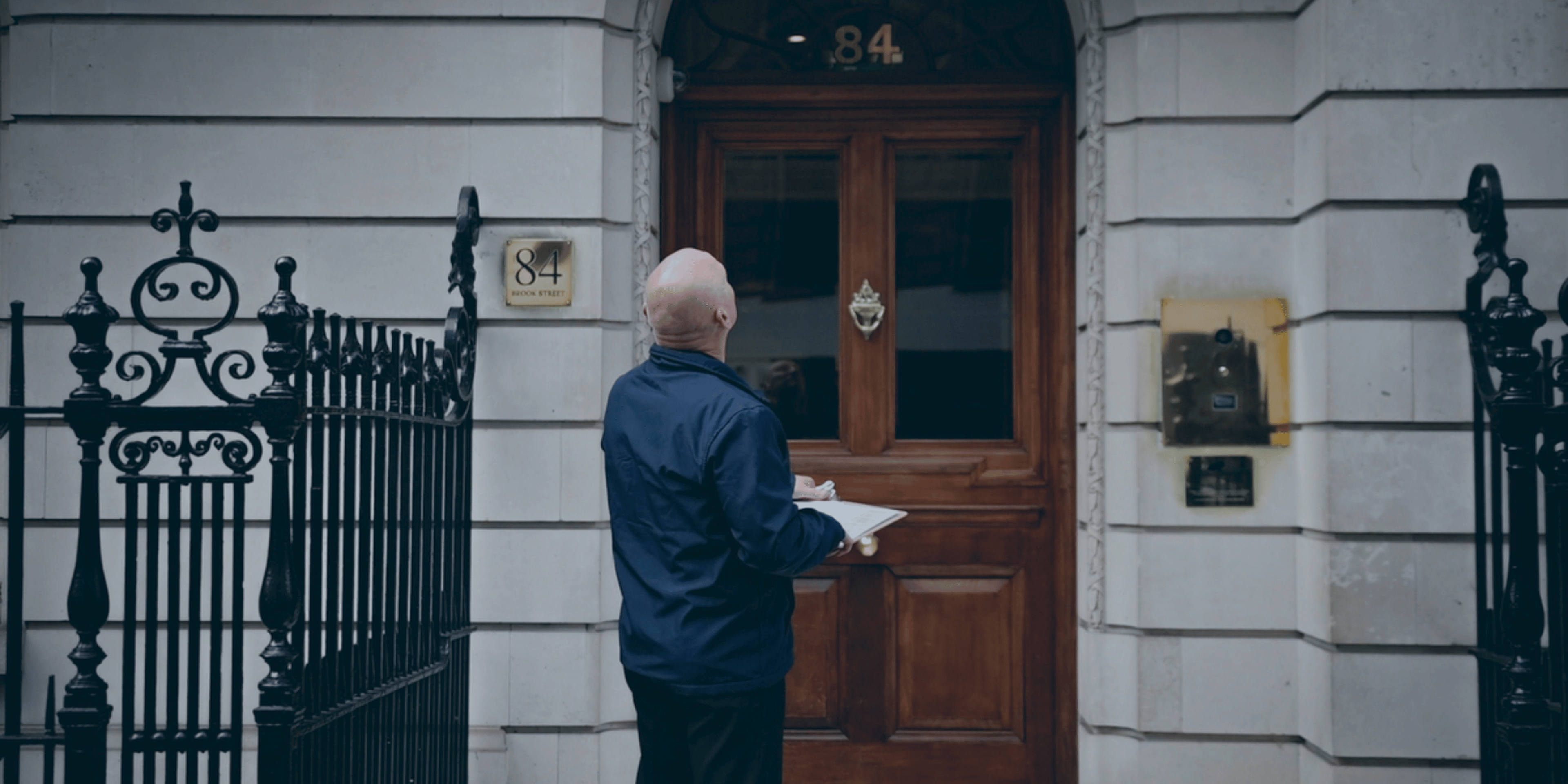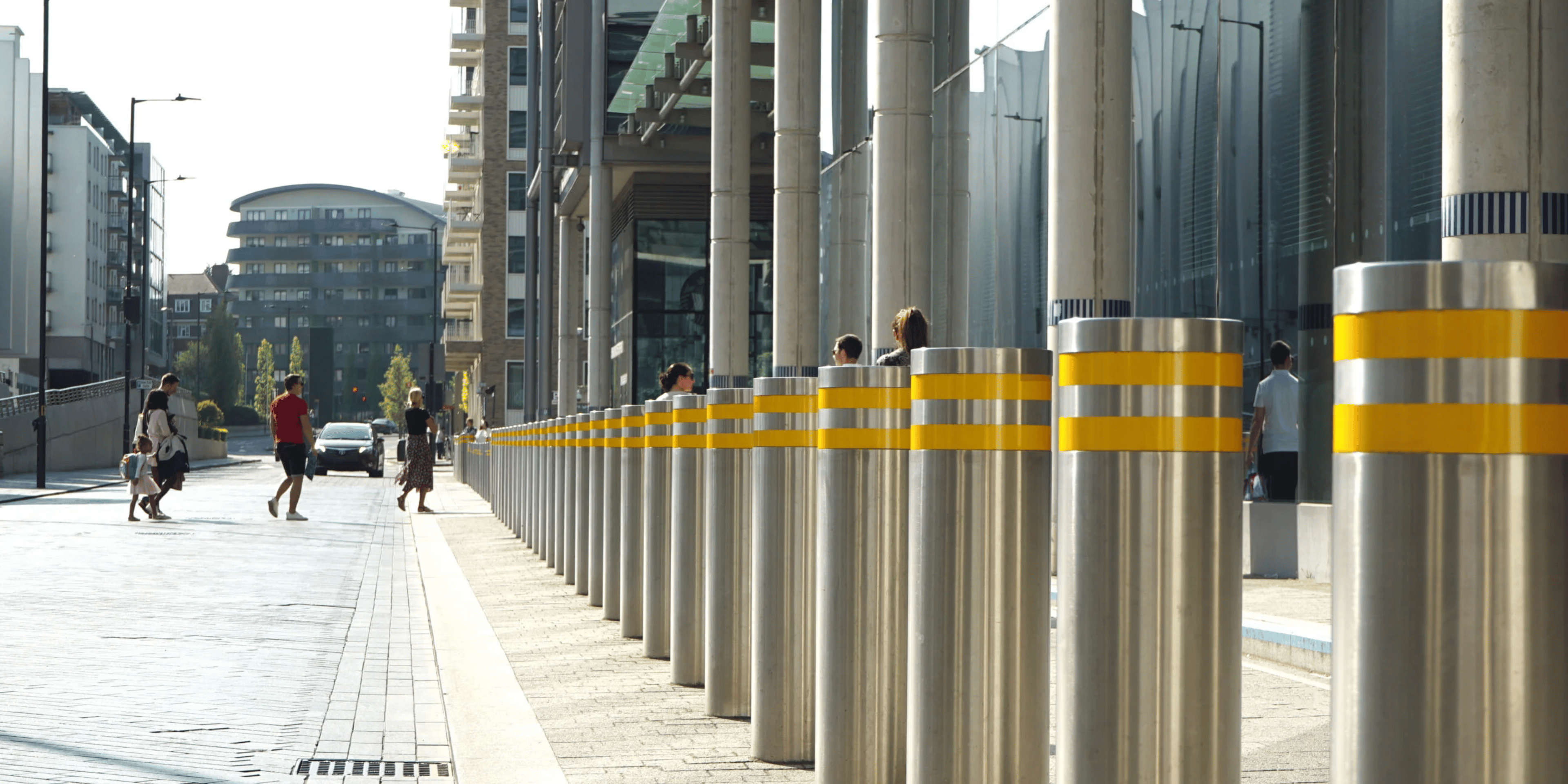
Understanding Professional Security in Construction Management

Overview
Professional security in construction management is vital for protecting sites, assets, and personnel against threats such as theft and unauthorised access. The reality is that effective security measures, including advanced surveillance technology and trained personnel, not only safeguard valuable resources but also enhance worker safety and project efficiency. This, in turn, minimises financial losses and ensures compliance with regulations.
Ignoring these risks can lead to significant operational and reputational consequences for businesses. Therefore, investing in robust security solutions is not merely an expense; it is essential for maintaining business continuity.
Priority First stands as a pragmatic solution, providing tailored security measures that align with the broader context of business resilience and economic logic.
Introduction
Professional security in construction management is paramount, particularly in light of the staggering £800 million annual losses attributed to site theft in the UK. This reality underscores the critical need for robust security measures to protect valuable assets and ensure the safety of personnel. Ignoring these risks can lead to significant financial, operational, and reputational consequences for construction projects.
In practise, the challenge for project managers lies in effectively integrating advanced technologies and trained personnel to create a secure environment. This not only safeguards assets but also enhances operational efficiency. The lesson is clear: early investment in security is essential to prevent greater losses down the line.
Priority First offers a pragmatic solution, focusing on evidence-led strategies that prioritise business resilience and economic logic. By securing over £1.6 billion in assets and maintaining rapid response times, we position ourselves as trusted partners in navigating these challenges. Security is not merely an expense; it is a fundamental component of business continuity.
Defining Professional Security in Construction Management
Professional security in building management involves a systematic approach to safeguarding sites, assets, and personnel from threats such as theft, vandalism, and unauthorised access. This encompasses a variety of measures, including the deployment of trained personnel, , strict access control protocols, and well-defined emergency response strategies. The reality is that the primary goal is to foster a secure environment that enables development projects to progress smoothly while adhering to regulatory guidelines.
Efficient safety management involves professional security, integrating advanced technology with skilled personnel to mitigate risks and enhance overall safety conditions. For example, the installation of high-quality CCTV cameras equipped with night vision and motion detection capabilities facilitates 24/7 monitoring, significantly decreasing the likelihood of theft. Striking statistics reveal that building theft costs the UK industry approximately £800 million annually, underscoring the critical need for robust security measures.
Moreover, implementing stringent access control measures—such as requiring ID badges and electronic keycard entry—ensures that only authorised personnel can enter the premises. This is particularly important, as over 51% of UK builders reported experiencing tool theft in 2023, highlighting the urgent requirement for effective safeguarding strategies.
The significance of protecting construction sites cannot be overstated. A comprehensive protective strategy that includes professional security not only secures valuable assets but also enhances worker safety and compliance with industry regulations. Routine safety evaluations and the integration of emergency response procedures further bolster site protection, ensuring preparedness for potential threats. The lesson is clear: by prioritising safety, project managers can maintain timelines and protect their firm's reputation, ultimately leading to improved operational efficiency and reduced financial losses.

The Importance of Security in Construction Projects
Safety in building projects is paramount, particularly given the significant value of materials and equipment, which are frequent targets for theft and vandalism. A notable 92% of construction professionals report experiencing crime at their sites, underscoring the pressing need for professional security measures.
This reality translates into serious implications for businesses: not only jeopardises physical assets but also threatens worker safety and compliance with legal standards. For instance, a secure site markedly decreases the likelihood of accidents and liabilities, which can disrupt projects and tarnish reputations.
Furthermore, implementing comprehensive protective strategies can lead to lower insurance premiums and reduced downtime, ultimately enhancing overall project efficiency. The lesson is clear: investing in professional security is not merely an overhead; it is a strategic necessity that safeguards both assets and the integrity of building operations.

Key Characteristics of Effective Security Solutions
Effective security solutions in construction management are characterised by several essential traits:
- Comprehensive Risk Assessment is crucial. Recognising the specific vulnerabilities of a construction site allows for tailored protective measures. This reduces potential threats and ensures that all aspects of professional security are taken into account. Priority First underscores the importance of thorough building inspections and risk evaluations, customising solutions to enhance safety and well-being.
- The Integration of Technology plays a pivotal role. The use of advanced technologies, such as 360-degree surveillance cameras, AI-driven monitoring systems, drones for aerial surveillance, and smart access control, significantly boosts monitoring and response capabilities. For example, AI surveillance can analyse historical data to forecast potential safety issues, facilitating timely interventions. Innovations like facial recognition and fingerprint biometrics streamline management and bolster safety.
- Trained Personnel are vital. Employing skilled staff familiar with construction protocols ensures that protective measures are effectively implemented and adapted to the unique challenges of the site. Priority First's commitment to professional security guarantees that their operatives provide expert protection with integrity and meticulous attention to detail.
- Continuous Surveillance, or 24/7 Monitoring, is essential for promptly addressing incidents. Remote video surveillance systems offer real-time notifications, enabling supervisors to respond swiftly to unauthorised access or security breaches, thereby enhancing overall site protection. Additionally, wearable technologies and environmental sensors provide alerts regarding worker health and safety conditions.
- Flexibility and Adaptability are necessary for security solutions. They must be responsive to the evolving dynamics of construction projects, including changes in layouts and schedules. This adaptability allows for the seamless integration of protective measures as projects progress. Priority First's flexibility ensures they can respond effortlessly to any environment or challenge, maintaining a secure and orderly site.
Together, these characteristics create a robust protective framework that not only ensures professional security for assets and personnel but also fosters a culture of well-being in construction environments. As industry experts like Shoujuan Cui emphasise, "The safety risk evaluation of building locations is of utmost significance," highlighting that thorough risk assessment is crucial for effective safety management, ultimately leading to safer and more efficient construction operations. Furthermore, Priority First's loyalty, discretion, and commitment to client-focused service enhance their effectiveness in delivering customised protection solutions, as evidenced by various case studies where they successfully navigated challenges in construction environments.
Leveraging Technology for Enhanced Security Management
The integration of technology in construction area protection has fundamentally transformed the execution and oversight of protective measures. Intelligent CCTV systems, enhanced with AI capabilities, detect suspicious behaviour and notify personnel in real-time, significantly improving response times and reducing the risk of incidents. These systems continuously analyse video feeds, ensuring that potential threats are identified before they escalate.
Access control systems play a crucial role in regulating entry, ensuring that only authorised personnel can access sites. By utilising biometric technologies like facial recognition and fingerprint scanning, building locations can enhance protection and prevent unauthorised entry, which is essential in high-risk zones.
Mobile surveillance units offer adaptable monitoring solutions, particularly beneficial for remote building locations. The swift installation of mobile CCTV towers provides 24/7 surveillance capabilities, equipped with high-definition cameras and motion detection, allowing for immediate alerts and intervention when necessary.
Data analytics enable the identification of patterns and the prediction of potential breaches by utilising information from monitoring systems. This proactive approach allows project managers to implement measures that mitigate risks before they arise, thereby improving overall safety on the premises.
Remote monitoring through cloud-based solutions facilitates constant oversight, allowing teams to monitor sites from anywhere. This capability ensures that project managers can respond swiftly to incidents, regardless of their physical location.
By leveraging these advanced technologies, construction managers can significantly enhance their security protocols, reduce response times, and create a safer working environment. Ultimately, this not only but also ensures project continuity.

Conclusion
Professional security in construction management is an essential element that protects sites, assets, and personnel from various threats. A systematic approach that integrates advanced technology with skilled personnel enables construction managers to establish a secure environment that is vital for project success. This focus on robust security measures transcends mere asset protection; it is fundamentally about ensuring worker safety and adhering to industry regulations.
Effective security solutions commence with comprehensive risk assessments that are tailored to the specific vulnerabilities of each site. The incorporation of advanced technologies, such as AI-driven surveillance and biometric access control, significantly enhances monitoring capabilities and diminishes the risk of unauthorised access. The commitment to continuous surveillance and the adaptability of security measures to the evolving dynamics of projects are crucial for maintaining a safe construction environment.
Investing in professional security is not just prudent; it is a strategic necessity that offers substantial benefits, including reduced insurance costs, minimised project downtime, and improved operational efficiency. As the construction sector grapples with ongoing challenges related to theft and safety, prioritising comprehensive security measures will not only safeguard valuable assets but also cultivate a culture of safety and compliance. By embracing these practises, construction projects can progress smoothly and successfully, thereby protecting the integrity of operations and the well-being of all stakeholders.
Frequently Asked Questions
What is professional security in construction management?
Professional security in construction management involves a systematic approach to safeguarding sites, assets, and personnel from threats such as theft, vandalism, and unauthorised access through various measures, including trained personnel, advanced surveillance systems, access control protocols, and emergency response strategies.
What are the main goals of implementing professional security in construction?
The primary goal is to foster a secure environment that allows development projects to progress smoothly while adhering to regulatory guidelines.
How does technology play a role in construction site security?
Technology enhances security by integrating advanced systems, such as high-quality CCTV cameras with night vision and motion detection, which facilitate 24/7 monitoring and significantly reduce the likelihood of theft.
What are the financial implications of theft in the construction industry?
Building theft costs the UK construction industry approximately £800 million annually, highlighting the critical need for robust security measures.
What access control measures are recommended for construction sites?
Recommended access control measures include requiring ID badges and electronic keycard entry to ensure that only authorised personnel can enter the premises.
What statistics indicate the prevalence of tool theft in the UK construction industry?
Over 51% of UK builders reported experiencing tool theft in 2023, underscoring the urgent need for effective safeguarding strategies.
Why is protecting construction sites important?
Protecting construction sites secures valuable assets, enhances worker safety, and ensures compliance with industry regulations, which is crucial for maintaining project timelines and protecting a firm's reputation.
How can project managers enhance site protection?
Project managers can enhance site protection by conducting routine safety evaluations and integrating emergency response procedures, ensuring preparedness for potential threats.




